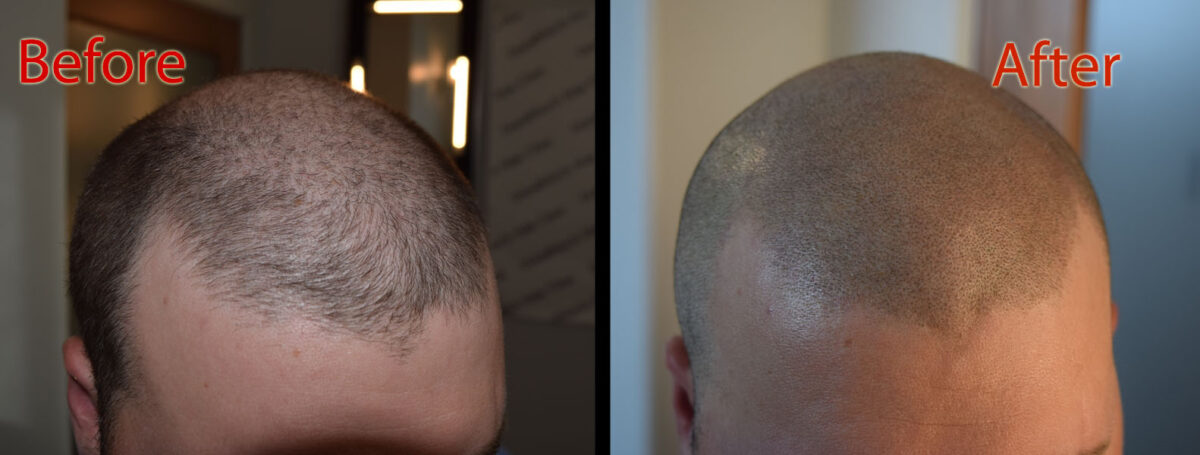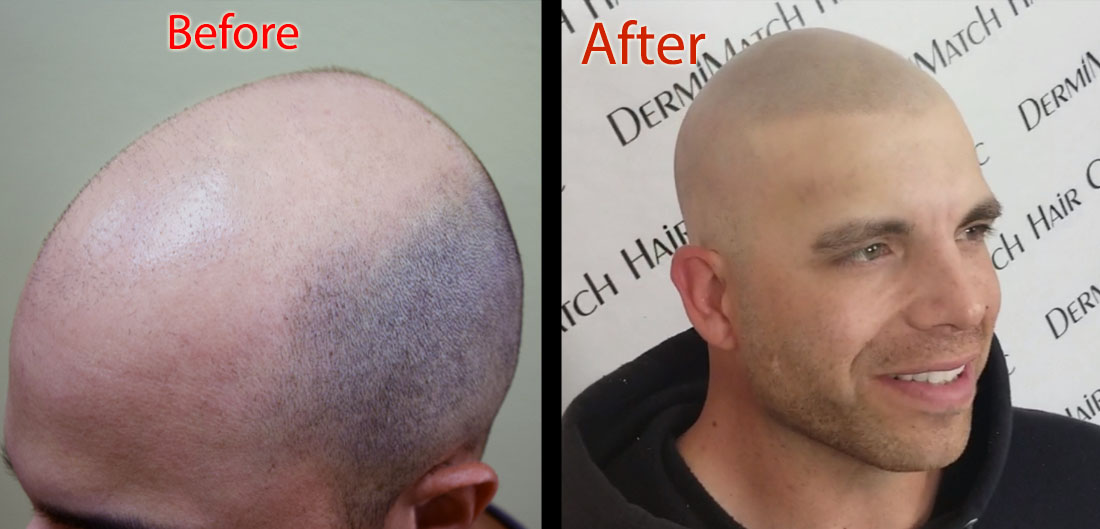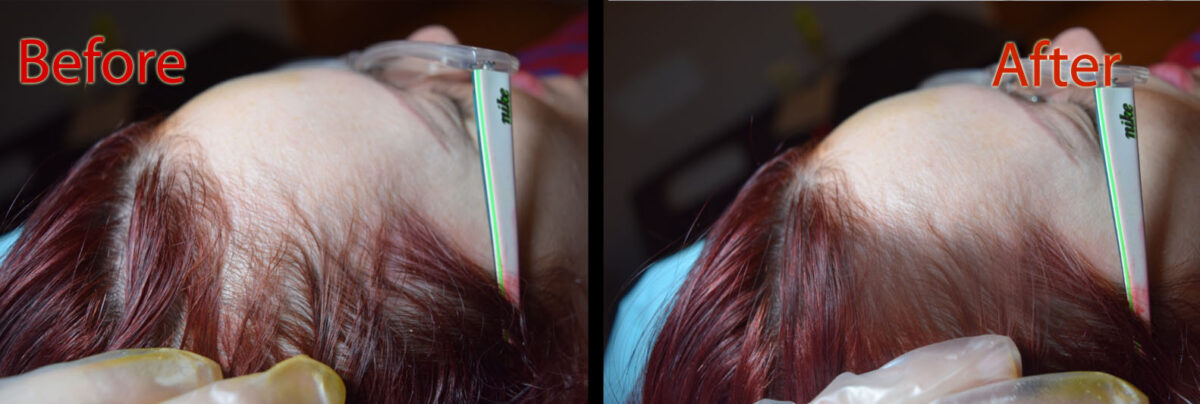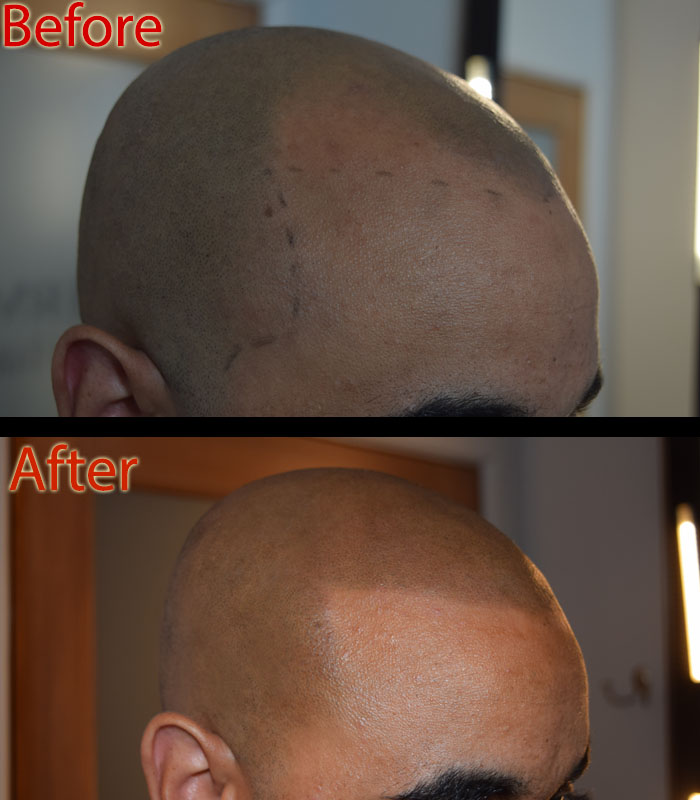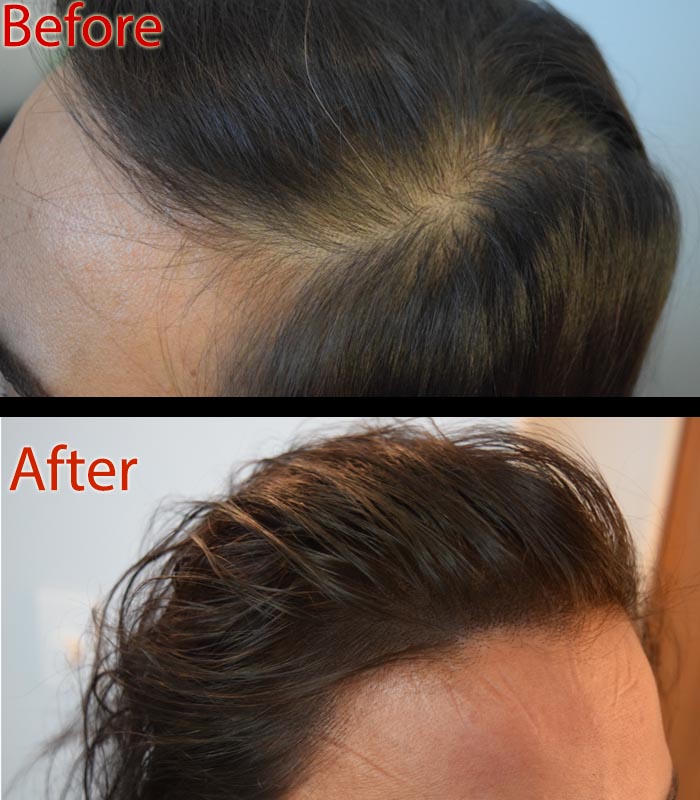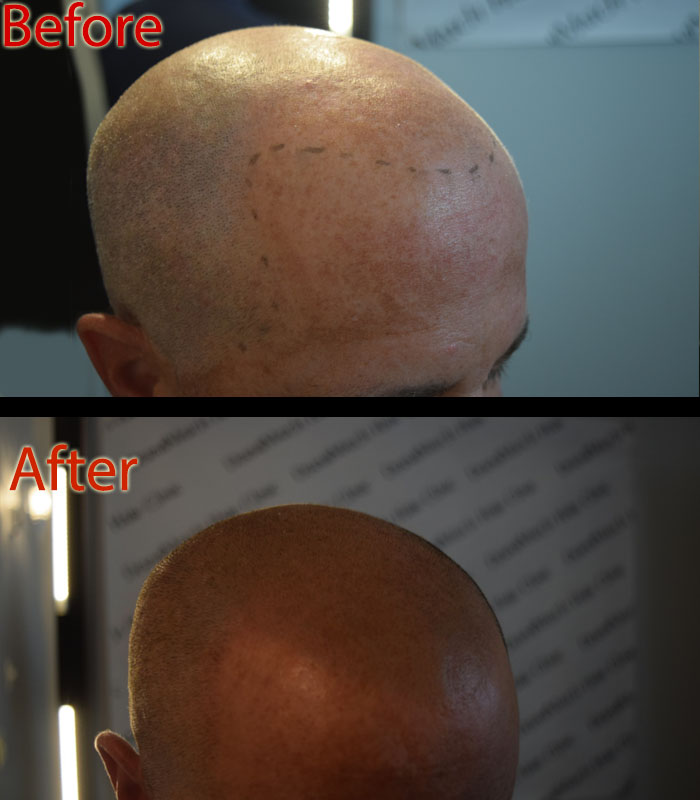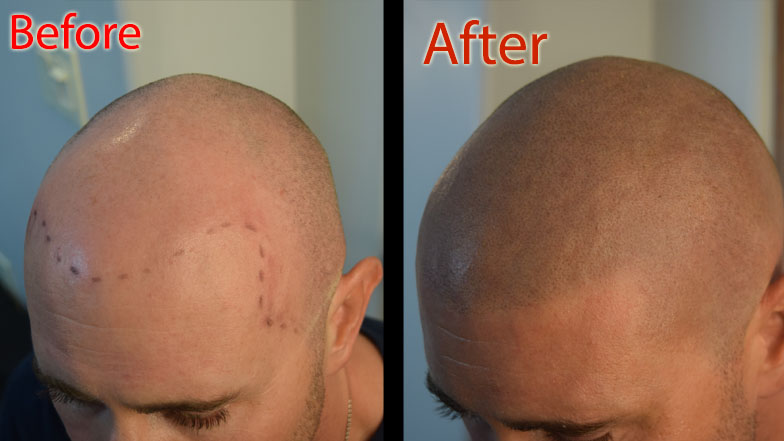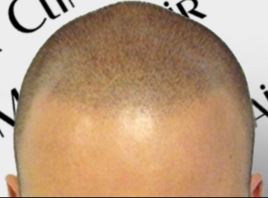Scalp micropigmentation for hair loss has revolutionized scalp care, with its non-surgical alternative that creates the appearance of a closely shaved head. It creates the impression of density for thinning areas. This advanced cosmetic procedure involves depositing specialized pigment into the scalp’s upper dermal layer using precise micro-needles, creating thousands of tiny impressions that mimic natural follicles.
Unlike traditional tattoos that penetrate deeper skin layers, SMP creates a natural, three-dimensional illusion of hair while allowing for gradual fading that maintains a realistic appearance as you age.
A well-performed scalp micropigmentation for hair loss treatment typically maintains its optimal appearance for 4 to 6 years before requiring a touch-up session. However, this timeline varies considerably based on individual factors, with some people experiencing excellent pigment retention for up to 8 years, while others might notice more substantial fading within 3 years of their initial treatment.
Factors Influencing the Longevity of Scalp Micropigmentation for Hair Loss
The durability of scalp micropigmentation depends on several interconnected factors that influence how quickly the pigment breaks down or fades within the skin. Understanding these variables can help clients make informed decisions and manage their expectations regarding maintenance requirements.
Internal factors
Skin type plays a crucial role in determining SMP longevity. Individuals with naturally oily skin typically experience faster fading as sebum production can gradually push pigment particles outward through the skin’s renewal process. Conversely, those with drier skin often enjoy longer-lasting results, sometimes extending beyond the average timeframe by 1-2 years.
The immune system’s response to foreign substances affects pigment retention as well. Some individuals naturally process and eliminate pigment particles more aggressively than others due to their unique immune function. This biological variability remains largely unpredictable but explains why two people receiving identical treatments from the same practitioner might experience different longevity outcomes.
Outside factors
Environmental exposure, particularly to ultraviolet radiation, significantly impacts SMP durability. UV rays break down pigment molecules over time, accelerating the fading process. Clients who spend considerable time outdoors, especially in sunny climates, or who frequently use tanning beds, will likely require more frequent touch-ups. Wearing hats and applying sunscreen to the scalp can substantially extend the treatment’s lifespan.
The Role of Technique and Aftercare
The practitioner’s skill level and technique significantly influence how long SMP results will last. Experienced technicians understand optimal needle depth for different scalp regions, proper pigment density, and appropriate color selection that accounts for eventual fading.
Reputable clinics using pharmaceutical-grade pigments specifically formulated for scalp application typically deliver longer-lasting results compared to those using standard tattoo inks not designed for SMP.
Post-procedure care during the first month plays a critical role in initial pigment retention. Following a strict aftercare regimen—avoiding excessive sweating, swimming, direct sun exposure, and harsh hair products for the recommended period—helps establish proper pigment settlement.
Many premature fading cases can be attributed to inadequate adherence to these guidelines during the crucial healing phase when the scalp is most vulnerable.
Touch-Up Requirements and Maintenance Schedule
Most reputable SMP providers structure their initial treatment as a series of 2-3 sessions spaced approximately 10-14 days apart. This approach allows for proper healing between sessions and enables Arizona SMP technicians to build density progressively while assessing how the client’s skin responds to the pigment. After completing this initial series, maintenance typically follows a more extended timeline.
Minor touch-up sessions may be recommended every 2-4 years to address specific areas that have faded more quickly or to adjust the hairline or density to accommodate aging or changing preferences. These maintenance appointments are generally shorter and less expensive than the initial treatment series, often requiring only a single session to refresh the appearance.
A comprehensive touch-up, addressing the entire treated area, becomes necessary when widespread fading has occurred. It may be only after 4-6 years, and even longer in some individuals.
This more extensive maintenance procedure essentially refreshes the entire SMP treatment and resets the maintenance clock. Many clients use these opportunities to make stylistic adjustments, perhaps lowering or softening a hairline or adjusting the density pattern to complement their aging process.
Maximizing Your SMP Investment
To extend the life of scalp micropigmentation for hair loss and maximize the value of this investment, it might help to incorporate several protective practices into your routine. Regularly applying sunscreen to the scalp when outdoors provides crucial protection against UV-induced fading.
Choosing gentle, sulfate-free shampoos prevents unnecessary stripping of the scalp’s natural oils and reduces chemical exposure to the pigmented areas.
Some clients opt for a proactive maintenance approach, scheduling brief “micro-touch-ups” annually or biennially to address any minor fading before it becomes noticeable. This preventative strategy often proves more cost-effective than waiting for significant fading to occur and requiring more extensive work later.
SMP Adaptability for Various Hair Loss Conditions
SMP versatility makes it an ideal solution for numerous hair loss conditions beyond complete baldness. For individuals with pattern baldness, SMP can create a framed, deliberate appearance that transforms thinning hair into what appears to be an intentional style choice. Those with alopecia areata or other forms of patchy hair loss are likely to benefit from SMP’s ability to camouflage affected areas. The procedure helps create visual uniformity across the scalp.
Cancer survivors experiencing treatment-induced hair loss and individuals with transplant scarring find SMP valuable for concealing evidence of medical procedures. Women with diffuse thinning or widening part lines can achieve the appearance of greater density without committing to daily topical concealers or expensive extensions.
Undoubtedly, SMP promises to be an effective hair loss treatment alternative. Baut finding the best hands for your Arizona SMP job matters. Get in touch with top scalp micropigmentation technicians in Arizona at DermiMatch Clinic.

